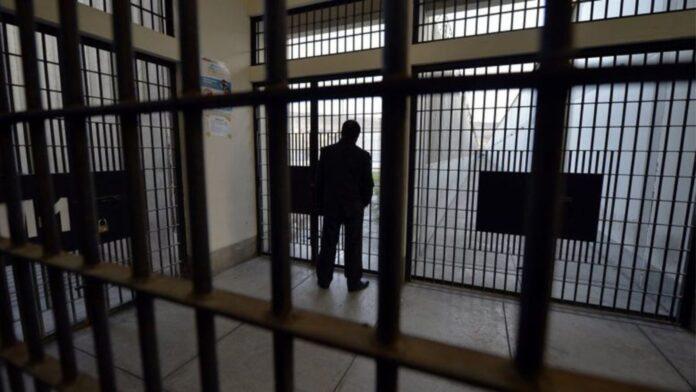Zbardhet drafti final i Amnistisë Penale, që pritet të kalojë për votim të enjten në Kuvend dhe që tregon dhe përcakton qartë kriteret që do të ndiqen për të dënuarit që përfitojnë nga amnistia.
Po ashtu në projektligj përcaktohen dhe kategoritë që përjashtohen dhe nuk përfitojnë nga amnistia.
DRAFTI
REPUBLIKA E SHQIPËRISË
Kuvendi
PROJEKTLIGJ Nr.______/2024 PËR DHËNIE AMNISTIE
Në mbështetje të neneve 81, pikat 1 e 2, shkronja “ë”, dhe 83, pika 1, të Kushtetutës, me propozimin e Këshillit të Ministrave, Kuvendi i Republikës së Shqipërisë
VENDOSI:
Neni 1
Qëllimi dhe parimet e ligjit
Qëllimi i këtij ligji është të përjashtojë nga vuajtja e dënimit dhe ndjekja penale, tërësisht ose pjesërisht, të gjithë personat që plotësojnë kriteret, sipas dispozitave të këtij ligji.
Dhënia e amnistisë, sipas këtij ligji, udhëhiqet nga:
a) parimi i humanizmit;
b) arritja e qëllimit të dënimit;
c) rrezikshmëria e ulët e personave që amnistohen;
ç) edukimi dhe rehabilitimi;
d) mbrojtja e interesit publik;
dh) dhënia e mundësisë së integrimit më të lehtë dhe më të shpejtë të të dënuarve të mitur dhe femra;
e) rritja e efiçencës në sistemin e drejtësisë;
ë) mbrojtja e interesit më të lartë të fëmijës.
Kudo në tekstin e projektligjit , afati 30.11.2023 zëvëndësohet me afatin 31.01.2024.
Neni 2
Përkufizime
Në këtë ligj termat e mëposhtëm kanë këto kuptime:
“I dënuar” konsiderohet:
personi i dënuar nga gjykatat e shkallës së parë të juridiksionit të përgjithshëm dhe gjykatat e shkallës së parë kundër korrupsionit dhe krimit të organizuar dhe që, brenda afatit ligjor, nuk është bërë ankim në gjykatat përkatëse të apelit, duke marrë formë të prerë brenda datës 01.2024;
personi i dënuar deri në datën 01.2024 nga gjykatat e apelit të juridiksionit të përgjithshëm dhe gjykata e apelit kundër korrupsionit dhe krimit të organizuar;
personi i dënuar deri në datën 01.2024 kur Gjykata e Lartë ka vendosur prishjen e vendimit të gjykatës së apelit dhe lënien në fuqi të vendimit të gjykatës së shkallës së parë, si dhe personi i dënuar nga Gjykata e Lartë, kur kjo gjykatë ka vendosur ndryshimin e vendimeve të gjykatës së apelit dhe të gjykatës së shkallës së parë, deri në datën 31.01.2024.
“Person që i është shmangur drejtësisë” është personi i fshehur, i arratisur ose i ikur, i cili, megjithëse ka dijeni, i shmanget me vullnet procedimit penal, zbatimit të masave të sigurimit ose ekzekutimit të vendimit gjyqësor të formës së prerë të dënimit.
Neni 3
Kriteret për përfitimin e amnistisë nga vuajtja e dënimit
Përjashtohen nga vuajtja e dënimit:
personat meshkuj, dënuar me vendim gjyqësor të formës së prerë, me burgim deri në 4 vjet ose çdo lloj dënimi tjetër më të butë, duke përfshirë gjobën ose një nga llojet e alternativave të dënimit me burgim, për dënime të dhëna deri në datën 01.2024, pavarësisht nga koha e mbetur nga dënimi;
personat femra, dënuar me vendim gjyqësor të formës së prerë, me burgim deri në 5 vjet ose çdo lloj dënimi tjetër më të butë, duke përfshirë gjobën ose një nga llojet e alternativave të dënimit me burgim, për dënime të dhëna deri në datën 01.2024, pavarësisht nga koha e mbetur nga dënimi;
personat meshkuj, dënuar me burgim, të cilëve, deri në datën e hyrjes në fuqi të këtij ligji, u ka mbetur pa vuajtur nga ky dënim deri në 4 vjet;
ç) personat femra, dënuar me burgim, të cilave, deri në datën e hyrjes në fuqi të këtij ligji, u ka mbetur pa vuajtur nga ky dënim deri në 5 vjet;
personat e dënuar meshkuj, të cilët në datën e hyrjes në fuqi të këtij ligji janë baras ose mbi moshën 60 vjeç;
dh) personat e dënuar femra, të cilat, në datën e hyrjes në fuqi të këtij ligji, janë baras ose mbi moshën 50 vjeç;
personat e dënuar me burgim, të cilët, në kohën e kryerjes së veprës penale, kanë qenë baras ose nën moshën 18 vjeç.
Nuk përjashtohen nga vuajtja e dënimit personat, të cilët i janë shmangur drejtësisë, sipas përcaktimit të pikës 2, të nenit 2, të këtij ligji.
Neni 4
Kriteri ndalues për përfitimin e amnistisë
Pavarësisht nga parashikimet e shkronjave “a”, “c” dhe “d”, të nenit 3, të këtij ligji, nuk përjashtohen nga vuajtja e dënimit personat e dënuar për:
krime kundër njerëzimit, të parashikuara në nenet 73, 74, 74/a dhe 75 të Kodit Penal;
krime kundër jetës, të kryera me dashje, të parashikuara në nenet 76, 77, 78, 78/a, 79, 79/a, 79/b, 79/c, 80, 81, 82, 83, 83/a, 83/b dhe 84/a të Kodit Penal, si dhe në nenin 77 të Kodit Penal Ushtarak;
vepra penale të kryera me dashje kundër shëndetit, të parashikuara në nenet 86, 87, 88, 89/a, 93, 96 dhe 99 të Kodit Penal;
ç) krime seksuale, të parashikuara në nenet 100, 101, 102, 102/a, 103, 104, 105, 106, 107/a, 108 dhe 108/a të Kodit Penal;
vepra penale kundër lirisë së personit, të parashikuara në nenet 109, 109/a, 109/b, 109/c, në paragrafin e dytë të nenit 110, në nenet 110/a, 110/b, 110/c dhe 111 të Kodit Penal;
dh) vepra penale kundër moralit dhe dinjitetit, të parashikuara në nenin 114, në paragrafët e dytë dhe të tretë të nenit 117, në nenet 119, 120, 121 dhe 121/a të Kodit Penal;
vepra penale kundër fëmijëve, martesës dhe familjes, të parashikuara në paragrafin e dytë të nenit 124, në nenin 124/a, në paragrafët e dytë e të tretë të nenit 124/b, në nenet 128/a, 128/b, 129 dhe 130/a të Kodit Penal;
ë) vepra penale kundër pasurisë dhe në sferën ekonomike, të parashikuara në paragrafin e tretë të nenit 134, në nenet 135, 136, në paragrafin e dytë të nenit 137/a, në paragrafin e dytë të nenit 138, në nenet 138/a, 139, 140, 141, 141/a, në nenet 143/a, 143/b, 144/a, 151, 152, 153, 154, 154/a, në paragrafin e dytë dhe të tretë të nenit 155, në paragrafin e dytë të nenit 159, në paragrafin e dytë të nenit 160, në nenet 164/a, 164/b, 175, në paragrafët e dytë dhe të tretë të nenit 180 dhe në nenin 181/a të Kodit Penal, si dhe në paragrafët e dytë dhe të tretë të nenit 59 të Kodit Penal Ushtarak;
vepra penale kundër falsifikimit të dokumenteve, të parashikuara në paragrafin e dytë të nenit 186/a, në paragrafin e dytë të nenit 187, në paragrafin e dytë të nenit 188, në nenet 190, 191, 192 dhe në paragrafin e dytë të nenit 192/b të Kodit Penal;
veprat penale që cenojnë regjimin juridik të tokës dhe të ndërtimeve, të parashikuara në paragrafët e tretë dhe të katërt të nenit 199/a dhe në nenin 199/b të Kodit Penal;
gj) vepra penale kundër mjedisit, të parashikuara në paragrafin e dytë, të tretë, të katërt dhe të pestë të nenit 201, në nenet 201/a, 201/b, 201/c, 201/ç, 202, 202/b, 203, 206/a dhe 206/b të Kodit Penal;
krime kundër pavarësisë dhe rendit kushtetues, të parashikuara në nenet 208, 209, 210, 211, 212, 213, 214, 215, 216, 217, 218, 219, 220, 221, 222, 223, 224 dhe 225 të Kodit Penal;
krime që cenojnë marrëdhëniet me shtetet e tjera, të parashikuara në nenet 226 dhe 228 të Kodit Penal;
vepra me qëllime terroriste, të parashikuara në nenet 230, 230/a, 230/b, 230/c, 230/ç, 231, 232, 232/a, 232/b, 233, 234, 234/a dhe 234/b të Kodit Penal;
krime kundër autoritetit të shtetit, të parashikuara në nenet 237, 243, 244, 244/a, 245, në paragrafin e dytë të nenit 247, në nenet 248, 248/a, 250, 252, 253, 257, 257/a, 258, 259, 259/a, 260, paragrafin e parë të nenit 263, 265, 265/a, 265/b, 265/c, 266, 267, 268, 270, 271, në paragrafët e parë, të dytë, të gjashtë, të shtatë dhe të tetë të nenit 278, në nenet 278/a, 278/b , në paragrafin e dytë të nenit 281, në paragrafin e dytë të nenit 282, në nenet 282/a, 282/b, 282/c, 283, 283/a, 284, 284/a, 284/c, 284/ç, 284/d, 285, 286, 287, 287/a, 287/b, 288, 288/a, 288/b, 288/c, 288/ç, në paragrafin e dytë të nenit 289, në paragrafët e dytë, të tretë dhe të katërt të nenit 290, në paragrafin e dytë të nenit 292, në nenet 293/a, 293/b, 293/c, 293/ç, 294, 295, në paragrafët e parë, të tretë, të katërt, të pestë dhe të gjashtë të nenit 295/a, në paragrafin e katërt dhe të pestë të nenit 298, në nenin 299 të Kodit Penal, si dhe në nenin 70 të Kodit Penal Ushtarak;”.
vepra penale kundër drejtësisë, të parashikuara në nenet 302, 303, 305, 311, 312, 312/a, 313, 313/a, 313/b, 314, 316, 317, 318, 319, 319/a, 319/b, 319/c, 319/ç, 319/d, 319/dh, 319/e, në paragrafin e dytë të nenit 323, në nenin 324 dhe në paragrafin e dytë të nenit 324/a të Kodit Penal;
ll) vepra penale që prekin zgjedhjet e lira dhe sistemin demokratik të zgjedhjeve, të parashikuara në nenet 325, 326, 326/a, 327, 327/a, 328, 328/a, 328/b, 329, 330, 330/a, 331, 331/a, 332 dhe 332/a të Kodit Penal;
vepra penale të kryera nga banda të armatosura dhe organizata kriminale, të parashikuara në nenet 333, 333/a dhe 334 të Kodit Penal.
Pavarësisht nga parashikimet e shkronjave “b”, “ç”, “dh” dhe “e” të nenit 3, të këtij ligji, nuk përjashtohen nga vuajtja e dënimit personat e dënuar për:
krime kundër njerëzimit, të parashikuara në nenet 73, 74, 74/a dhe 75 të Kodit Penal;
krime kundër jetës, të kryera me dashje, të parashikuara në nenet 76, 77, 78, 78/a, 79, 79/a, 79/b, 79/c,81 dhe 83/b të Kodit Penal;
vepra penale të kryera me dashje kundër shëndetit, të parashikuara në nenet 86, 87, 88 dhe 89/a dhe 93 të Kodit Penal;
ç) krime seksuale, të parashikuara në nenet 100, 101, 103, 104, 105, 106, 107/a 108 dhe në paragrafin e dytë të nenit 108/a të Kodit Penal;
vepra penale kundër lirisë së personit, të parashikuara në nenet 109, 109/b, 109/c, në paragrafin e dytë të nenit 110, në nenet 110/a, 110/b, 110/c dhe 111 të Kodit Penal;
dh) vepra penale kundër moralit dhe dinjitetit, të parashikuara në paragrafin e dytë të nenit 114, në paragrafët e dytë dhe të tretë të nenit 117 dhe në nenin 121 të Kodit Penal;
vepra penale kundër fëmijëve, martesës dhe familjes, të parashikuara në paragrafin e dytë të nenit 124, në nenin 124/a, në paragrafin e dytë dhe të tretë të nenit 124/b, në nenet 128/a e 128/b dhe 129 të Kodit Penal;
ë) vepra penale kundër pasurisë dhe në sferën ekonomike, të parashikuara në nenet 135, 136, në paragrafin e dytë të nenit 137/a, në paragrafin e dytë të nenit 138, në nenet 139, 140, 141, 143/a, 143/b, 144/a, 151, 152, 153, 154, 154/a, në paragrafin e dytë dhe të tretë të nenit 155, në paragrafin e dytë të nenit 159, në nenet 164/a, 164/b, 175, në paragrafin e dytë dhe të tretë të nenit 180 dhe nenin 181/a të Kodit Penal;
vepra penale kundër falsifikimit të dokumenteve, të parashikuara në paragrafin e dytë të nenit 186/a, në paragrafin e dytë të nenit 187, në paragrafin e dytë të nenit 188, në nenet 190, 191 dhe 192 dhe në paragrafin e dytë të nenit 192/b të Kodit Penal;
vepra penale kundër mjedisit, të parashikuara në paragrafin e dytë, të tretë, të katërt dhe të pestë të nenit 201, 201/a, 201/b, 201/c, 201/ç, 202, 202/b, 203, 206/a, 206/b, të Kodit Penal;
gj) krime kundër pavarësisë dhe rendit kushtetues, të parashikuara në nenet 208, 209, 210, 211, 212, 213, 214, 215, 216, 217, 218, 219, 220, 221, 222, 223, 224 dhe 225 të Kodit Penal;
krime që cenojnë marrëdhëniet me shtetet e tjera, të parashikuara në nenet 226 dhe 228 të Kodit Penal;
vepra me qëllime terroriste, të parashikuara në nenet 230, 230/a, 230/b, 230/c, 230/ç, 231, 232, 232/a, 232/b, 233, 234, 234/a dhe 234/b të Kodit Penal;
krime kundër autoritetit të shtetit, të parashikuara në nenet 243, 244, 244/a, 245, 248, 248/a, 250,253, 257, 257/a, 258, 259, 259/a, 260, paragrafin e parë të nenit 263, 265, 265/a, 265/b, 265/c, 266, 267,268, në paragrafin e pestë, të gjashtë, të shtatë dhe të tetë të nenit 278, në nenet 278/a e 278/b, në paragrafin e dytë të nenit 281, në paragrafin e dytë të nenit 282, në nenet 282/a, 282/b, 282/c, 283, 283/a, 284, 284/a, 284/c, 284/ç, 284/d, 285, 286, 287, 287/a, 287/b, 288, 288/a, 288/b, 288/c, 288/ç, në paragrafin e dytë të nenit 289, në paragrafin e dytë, të tretë dhe të katërt të nenit 290, në paragrafin e dytë të nenit 292, në nenet 293/a, 293/b, 293/c, 293/ç, 294, 295, në paragrafin e parë, të tretë, të katërt, të pestë dhe të gjashtë të nenit 295/a, në paragrafin e katërt dhe të pestë të nenit 298 dhe në nenin 299 të Kodit Penal, si dhe në nenin 70 të Kodit Penal Ushtarak ;
vepra penale kundër drejtësisë, të parashikuara në nenet 302, 303, 311, 312, 312/a, 313, 313/a, 313/b, 314, 316, 317, 318, 319, 319/a, 319/b, 319/c, 319/ç, 319/d, 319/dh, 319/e, në paragrafin e dytë të nenit 323, në nenin 324 dhe në paragrafin e dytë të nenit 324/a të Kodit Penal;
vepra penale që prekin zgjedhjet e lira dhe sistemin demokratik të zgjedhjeve, të parashikuara në nenet 325, 326, 326/a, 327, 327/a, 328, 328/a, 328/b, 329, 330, 330/a, 331, 331/a, 332 dhe 332/a të Kodit Penal;
vepra penale të kryera nga banda e armatosur dhe organizata kriminale, të parashikuara në nenet 333, 333/a dhe 334 të Kodit Penal.
Neni 5
Kriteret për përfitimin e amnistisë nga zbritja e dënimit
Të gjithë personave të dënuar, të cilët nuk plotësojnë kriteret për t’u përjashtuar nga vuajtja e dënimit, sipas nenit 3 të këtij ligji ose, edhe pse plotësojnë kriteret për përfitimin e amnistisë sipas këtij neni, nuk përjashtohen nga vuajtja e dënimit për shkak të kritereve ndaluese të përcaktuara në pikat 1 dhe 2, të nenit 4 të këtij ligji, u zbritet:
1 vit e gjysmë nga dënimi i mbetur, për personat e dënuar, gra, dhe të mitur;
1 vit nga dënimi i mbetur, për personat e dënuar, burra.
Pavarësisht nga parashikimet e pikës 1, të këtij neni, nuk përfitojnë zbritje të dënimit:
personat e dënuar me burgim për veprat penale të parashikuara në nenet 79, 79/a, 79/b dhe 79/c të Kodit Penal;
personat e dënuar me burgim të përjetshëm;
Nuk përfitojnë nga zbritja e dënimit personat, të cilët i janë shmangur drejtësisë, sipas përcaktimit të pikës 2, të nenit 2, të këtij ligji.
Neni 6
Kriteret për përfitimin e amnistisë nga ndjekja penale
Përjashtohen nga ndjekja penale të gjitha çështjet penale në hetim, çështjet e pashqyrtuara ose në proces shqyrtimi nga gjykatat, si dhe kallëzimet që ndodhen në këto organe, pavarësisht nga data e regjistrimit të tyre, për veprat penale të kryera deri në datën 31.01.2024, për të cilat Kodi Penal dhe Kodi Penal Ushtarak parashikon një dënim me burgim në maksimum deri në 2 vjet ose çdo lloj dënimi tjetër më të butë, me përjashtim të veprave të parashikuara nga nenet 91, 96, në paragrafin e dytë të nenit 112, në nenet 119, 119/a, 119/b, 120, 121, 122, në paragrafin e parë të nenit 124/b, në nenet 125, 127, 204, 205, 206, 207, në paragrafin e parë të nenit 257/a, në nenet 269 dhe 318 të Kodit Penal.”.
Nuk përfitojnë nga ky nen personat të cilët i janë shmangur drejtësisë.
Nuk përfitojnë nga pika 1 e këtij neni subjektet e posaçme, akuzat penale ndaj të cilave gjykohen nga Gjykata kundër Korrupsionit dhe Krimit të Organizuar sipas përcaktimeve të shkronjave “c” dhe “ç”, të nenit 75/a të Kodit të Procedurës Penale.
Neni 7
Të drejtat civile në procesin penal
Nga zbatimi i këtij ligji nuk cenohen të drejtat civile në procesin penal dhe as shpenzimet gjyqësore të kryera gjatë gjykimit deri në momentin e hyrjes në fuqi të këtij ligji.
Neni 8
Hyrja në fuqi
Ky ligj hyn në fuqi 15 ditë pas botimit në “Fletoren zyrtare”.
KRYETARI
LINDITA NIKOLLA






